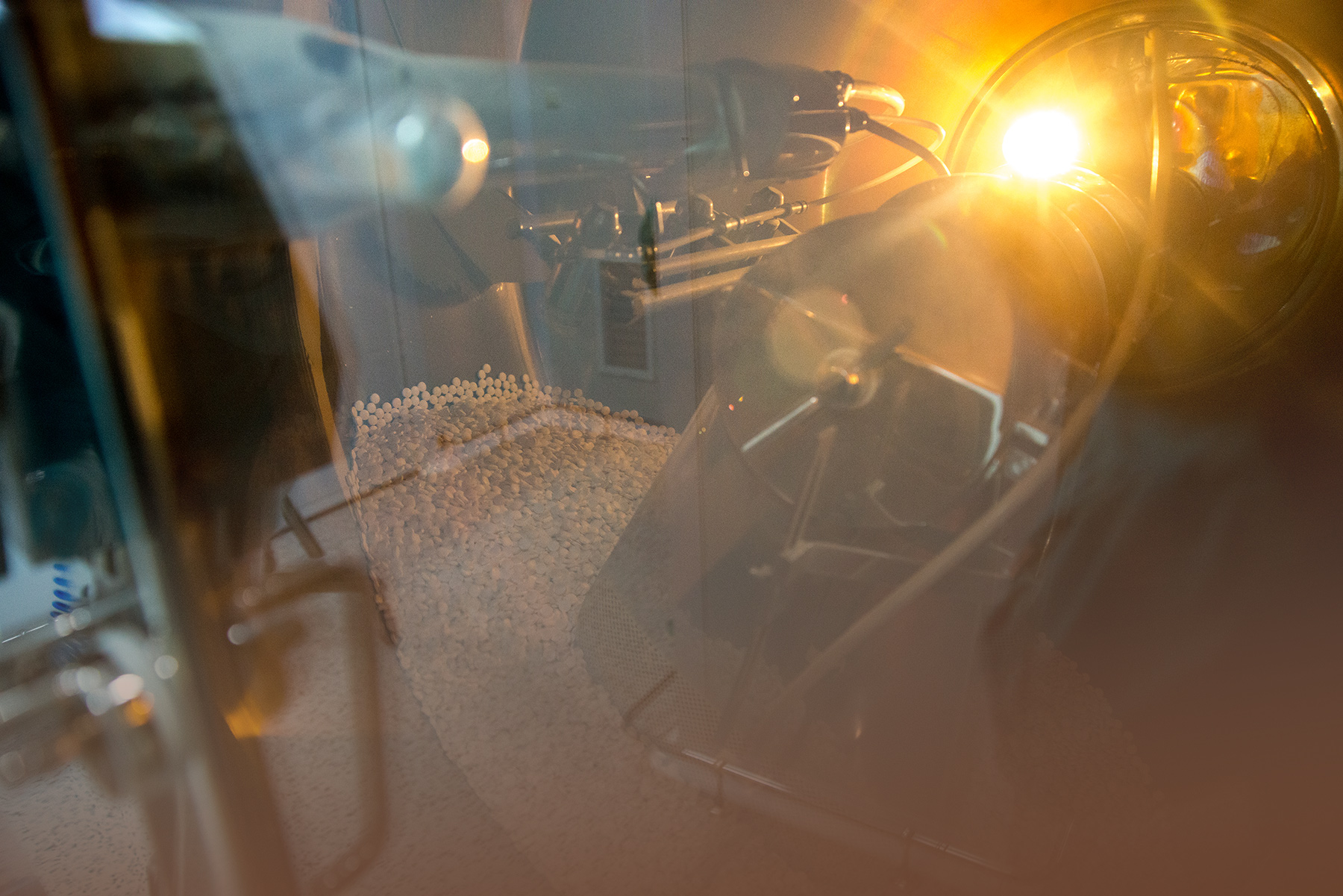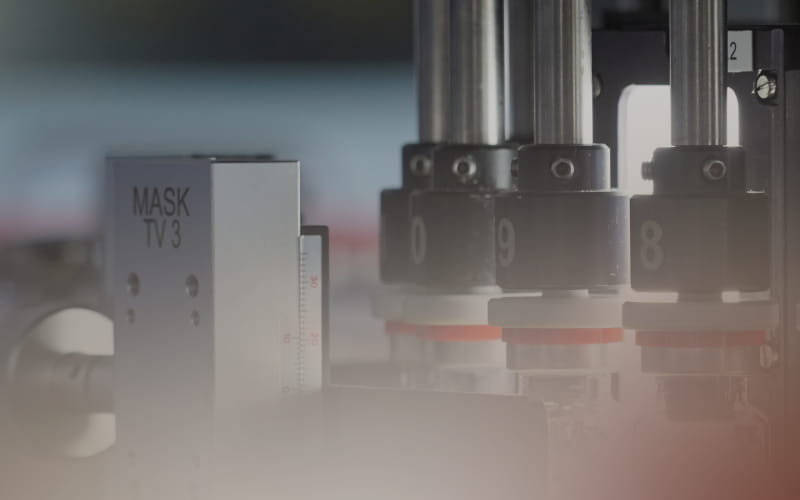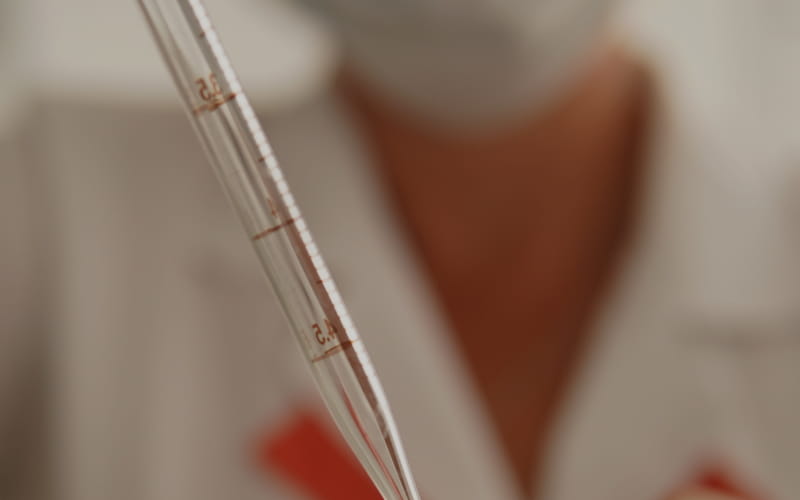
Head of Promomed Group: in response to economic risks, we will increase the number of innovative drugs
Petr Bely, Chairman of the Board of Directors of Promomed Group, spoke about plans to bring life-extending drugs to the market, create drugs for a severe form of coronavirus infection, and prospects for developing therapies for new infections in an interview with TASS at the SPIEF-2022.
.jpg)
— Good afternoon. Could you tell us, please, what is the current situation with supply of imported components and equipment for Promomed Group, are deliveries from other countries arranged?
— I can tell you clearly: there will be no shortage of medicines in Russia. We are provided with everything, and this is not just a declaration. We approached this as follows: we divided the entire portfolio of drugs into groups A, B and C according to priority. Group A is the most important and unique drugs, group B is very important drugs, the availability of which is important for the country, and group C is easily replaceable drugs. For groups A and B, we have a stock of substances for a period of six months to a year, the stock of finished dosage forms is about the same. Therefore, there is no risk to the availability of drugs in any of the critical nosologies for which Promomed Group makes drugs.
At the moment we can work as planned. We are now launching one of the largest productions of substances – 150 names of molecules. This is a gigantic production: seven workshops, three of them for anti-cancer products. This is not only our independence from foreign suppliers, but also the possibility of a very flexible approach to the raw material resources that we use. We clearly understand our priorities and do a lot to ensure independence at the level of substance supply in the shortest possible time.
I must say that we did not start yesterday. This is not a project that can be completed in two or three months. It took years. But, fortunately, our readiness is already very high. A number of projects are in the stage of commissioning. A few more months will pass, and it will be a giant full-cycle industry for a very wide range of drugs.
— Do you keep investment plans for the current year due to the economic situation?
— We have not only preserved, but also expanded them. We think that our response to the risks associated with economic uncertainty should be to increase the portfolio of innovative drug products, and this requires an increase in investments in production capacities. Typically, innovative drugs require new equipment and increased investment in clinical research and development. We have increased budgets in both areas. Today, we have more than 20 innovative drug products at different stages of clinical trials.
Let me give an example. We have a drug for the treatment of syndromes associated with impaired cerebral circulation. In fact, for the treatment of stroke. And then we had a clinical hypothesis that this drug can be effectively used to treat the neurological complications of COVID-19. It is very important for us that our hypothesis was supported by leading neurologists of the country and academicians. This is certainly a promising drug. If our clinical hypothesis is confirmed, then this drug will actually become a pioneer.
Currently, there is no drug around the world with would have an indication for the treatment of the neurological consequences of coronavirus infection. Perhaps, it is a much greater burden than the COVID itself. This drug is currently in the final stages of clinical trials.
— When can they end?
— In about a few months.
— That is, it can be brought to the Russian market this year?
— This year, of course, if the results of clinical trial confirm our clinical hypothesis.
— You said that you have more than 20 innovative drugs at the stage of clinical trials. How many anti-COVID drugs among them?
— No more than five. The rest are neurology, infection control, and oncology. For example, we are conducting research that we think will significantly increase the survival period of patients with advanced cancer, the third and fourth stages. Preclinical studies demonstrated a significant increase in the median survival period. This is not two or three weeks, but a more significant, several-fold, increase in survival.
— From the state register of medicines, it follows that Promomed is conducting clinical trials of the drug in an injectable form for the treatment of patients with moderate and severe COVID.
— Absolutely right. This is one of the five clinical studies that I talked about. We are deepening our knowledge of how COVID can be treated in more advanced stages. After all, people do not die at home, but in hospitals, when the disease has worsened greatly. We think we can offer another effective solution. Now, when the incidence of coronavirus is, perhaps, at a minimum for the entire period, the recruitment of patients for the study is rather slow. Nevertheless, we are optimistic about the timing of its completion. We think that it will be completed this year.
— Due to the fact that the incidence of COVID has now dropped significantly, how much have you reduced the production of drugs for this disease?
— Of course, we reduced it. Our budget for the second half of the year does not provide for the production of these drugs at all. We have enough stocks of substances and finished products. If there is some kind of sharp outbreak, we are ready to start, but now there is no such need. It seems to me that any planned movement is more important than emergency movement. That is why, we produce 250 types of medicines not for COVID. They are very important for our healthcare system.
— Are you considering the possibility of developing drugs against monkey pox?
— Maybe. We do not yet see the conditions for this disease to become a pandemic or even an epidemic. Nevertheless, this is a kind of new nosology. We should at least have a long list or a short list of molecules that can be effective against this RNA virus. We have such lists. Now we are at a fairly deep stage of understanding our technological capabilities. That is, most likely, we will definitely be able to produce one or two molecules that will have a high efficiency profile.
— SPARK-Interfax informs that Promomed Group acquired 18% of the Biolife Research and Registration Center. What is the purpose of the deal?
— This is a very good laboratory. We actually acquired a stake in this company, strengthening it from a technological point of view. The deal will allow us to significantly expand the scope of tests that we can conduct during the development of new drugs. This is part of our plan to expand R&D capacity.
— Does Promomed Group plans to enter new foreign markets, export medicines to new countries?
— Of course, this is part of our strategy. It is almost impossible to enter foreign markets with a generic portfolio. This can only be done with original products that have a unique efficacy and safety profile. Now, when we have a lot more such drugs in our portfolio, we have all the opportunities, both technical, physical, and resource, to enter extraterritorial markets. Of course, COVID showed the first positive experience in this context. Russia has managed to take a giant step forward compared to the whole world and to some extent even get ahead of the time with direct antiviral therapy.
We see that the interest, primarily from Asian countries, has been enormous. For example, our Areplivir is the most popular anti-COVID drug in Vietnam. There are many such examples.
Then we developed an innovative form of Areplivir, an injectable drug for the treatment of hospital patients with a severe coronavirus infection. This is a story where we are no longer dependent on popularity, with which we can confidently move from country to country, conduct local clinical trials. These types of drugs form the basis of our export portfolio for the future.
The main direction of our export efforts is, of course, Asia and Southeast Asia.
We see great opportunities for the export of original and biological drugs, drugs for infection control and drugs for RNA therapy. With anti-COVID drugs everything is easier. Most countries have a mechanism for very rapid market entry for such medicines. In traditional therapeutic groups, it is necessary to conduct additional local clinical trials and obtain marketing authorizations. Typically, this process takes several years.
— Is there a risk of increasing prices for medicines in the current situation? Do you see the need to re-register prices for some of your drugs?
— In general, the system works well. Of course, we have some anachronisms. There is a good drug, the registered price for which is 5 rubles 60 kopecks. There is some kind of penicillin or cefazolin, the price of which is 10 rubles. For comparison, a ride on the subway costs 55 rubles. These are incomparable values, a life-saving drug, an antibiotic, and a subway ride. But the system is designed to keep these extremely low prices. This leads to the fact that most of the drugs in the low price segment are not produced. This problem is not new, it is discussed at different fora. So far, no universal solution to this problem has been found.
But now we are much more concerned about the issue of bringing new drugs to the market. There are clear mechanisms of state regulation and effective methods. As a rule, it is possible to achieve mutual understanding between regulators and the industry. Therefore, if we look from a bird's eye view, there is no global problem with pricing. Of course, if we consider each segment separately, we can find some problems. But, perhaps, this is not a topic that requires urgent measures.
— In conclusion, what is your company lacking now in order to develop fully?
— In the context of interaction with government regulation, there are several very important areas in which we are interested and take an active part. One of them is to create a system that would make it possible to provide Russian inventions with the amount of legal protection comparable to that received by our colleagues from the world's leading economies. Very important steps are already being taken in this direction, but, in fact, we are only in the beginning of this path. Without reliable legal protection of intellectual property, we will not have movement towards export.
The second direction is the creation of a system for the accelerated introduction of innovative drugs to the market. The first such system of fast tracks appeared in our country during pandemic of COVID-19. This has allowed our country to be ahead in terms of advanced therapeutic practices. But COVID is not the only nosology that causes high mortality. It is important that mechanisms appear for Russian innovative drugs similar to those provided by the Russian Government Resolution No. 441, which has accelerated the launch of anti-COVID drugs on the market. This is also a very important area of dialogue with the regulator. Any success in this direction will also make us, as a country, much stronger.
Source: tass.ru



